(ECNS) -- China and the United States on Wednesday released the China-U.S. Joint Glasgow Declaration on Enhancing Climate Action in the 2020s at the ongoing 26th session of the Conference of the Parties (COP26) to the United Nations Framework Convention on Climate Change in Glasgow, the UK.
The two sides agreed to enhance climate action and establish a working group to promote cooperation on climate change.
During the COP26 sessions, Peng Dawei, chief journalist of China News Service’s German branch, talked to Børge Brende, president of the World Economic Forum. Brende observed the achievements made in implementing the Paris Agreement as China and the U.S., the two big world powers, cooperate. He emphasized that more global cooperation is needed in facing global challenges like climate change, the COVID-19 pandemic, and loss of biodiversity.
Børge Brende is a Norwegian politician and diplomat serving as President of the World Economic Forum since 2017. He was previously minister of Foreign Affairs from 2013 to 2017, minister of Environment from 2001 to 2004, and minister of Trade and Industry from 2004 to 2005.
Here’s an excerpt of the dialogue.
Peng Dawei:There are already a wide range of initiatives in the climate area. So why do we need a First Movers Coalition now? Is this coalition inclusive for every country and every stakeholder?
Børge Brende: We know a lot is at stake now, our planet is on fire. And we will need to take major steps in the run up to and also during the Glasgow COP to make sure that we all reach 1.5 degrees Celsius target.
And the World Economic Forum works very closely with the leading companies of the world and one of the initiatives that we will launch during Glasgow is also making sure that the companies that have huge purchasing power, like the Alibaba or Amazon, do set clear targets, also to the companies where they buy products from, to really reduce their CO2 footprint in the future. So that's one of many contributions making sure that we made progress.
Peng Dawei: You will start this with Secretary Kerry's office. But as you have mentioned, this door is open to all stakeholders around the world, not just exclusively for American companies or European companies.
Børge Brende: We would like to work with the companies that do have ambitions, climate goals, and want to use also their purchasing power to really advance technologies that today are not really available. But we have seen the past that setting clear targets are extremely important.
Look, for example, solar. If I have said 10 years ago that the price for solar would fall to 1/10, people would say that's over-ambitious.But today we know that solar is 10% of what it cost 10 years ago. And through the development of more modern solar panels, these are now available. And they're also very competitive when it comes to traditional energy sources.
And here we also have to thank China a lot. Through its manufacturing and producing, solar has been a major contributor to driving down the prices for solar energy. We have now seen a lot of solar panels being not only developed, but we have seen investments and they're all over the world driving down the prices and increasing amount of renewables.
Peng Dawei: We have heard again and again the Great Reset, the Building Back Better, especially the latter. Both of the ideas were initiated by the World Economic Forum. And those ideas have not only been endorsed by world leaders, such as Joe Biden and Boris Johnson, but both governments of the United States and the UK even named their covid relief plans after it.
Meanwhile, we know that Chinese President has proposed a global development initiative during the United Nations General Assembly in September. What do you think of the relationships between those initiatives? Are they competitors with each other? Or we could find out a way to make them somehow collaborative?
Børge Brende: No, I hope that they can collaborate more. And in the future, global challenges need global response. The relationship between the U.S. and China is critical also for future progress, being climate, but also biodiversity, where we had very important breakthroughs now in China. We have to face the following fact that 1 million species are, in fact, going extinct in the years to come, being animals and plants, if we don't change the unsustainable path that we are on today when it comes to land use and biodiversity.
So we also know in many other topics like pollution, plastics in ocean and all this, we need to collaborate and we have to collaborate more. Also President Xi Jinping in Davos, when he was there, there was an annual meeting, strongly underlined the importance of multilateralism, and that climate change or other challenges don't know borders. The greenhouse gases don't travel with the passport. And we have seen the covid does not respect borders. The only way moving forward is that we realized that we're in the same boat and we have to collaborate.
Peng Dawei: John Kerry used to play a key role in the United States joining the Paris Agreement. And now he's back on stage. He's doing really hard trying to persuade both the United States and China to put aside the conflicts and corporate on climate issues. Why do you think these two countries’ corporation so decisive?
Børge Brende: China and the U.S. is more than 40 % of the global economy. Their cooperation, as we saw in the run up to and also in Paris, is critical. And what makes me more optimistic is that then climate envoy Minister Xie and also Secretary Kerry has worked well with each other in the past, in fact, for climate meeting in Paris. And Secretary Kerry has visited China and had meetings with Minister Xie many times. And I know that they're both very passionate about climate, and they're both also personal friends of me. And I work with them both in the past. And I think we really have to rely on their leadership, in the run up to COP, but also post-COP where there has to be a lot of deliverance.
Peng Dawei: When we talk about leadership, it's about the definition. Because when it comes to sustainability and global governance, we definitely need a leadership. But if you look at the geopolitical context, the Chinese government seems to refuse a western leadership. For example, when U.S. President Biden said in May that the world needs U.S. leadership to end this pandemic, the Chinese foreign ministry spokesperson responded that China will not be like the United States. China will not use vaccines to influence or lead the world. And it will not chant slogans without action. What's your take on this? How can we define leadership?
Børge Brende: As I said in the previous answers, it is critical that we in the future will see cooperation between the two largest economies in the world - China and the U.S., be it in climate area, be it on biodiversity, saving all our species, be it also on trade, but also on technologies. We have an internet, we don't want the split internet. So global challenges have to have global solutions.
So on the World Economic Forum, we, also our partners, try to incentivize the willingness to work together. We try not to get involved into all those discussions that are taking place. We're much more looking at areas where we can incentivize and catalyze cooperation and finding solutions like we do in the climate area. We also had, for example, key CEOs from all over the world. They’re now calling for action on trade in the run up to MC12 trade minister meeting under WTO that's gonna take place in Geneva in early December, where the CEO said, you really, really need now to find solutions on global value chains. We cannot continue with the situation where there is a lack of investments in port, railways and also on roads. And we will need to also strengthen the negotiating arm of the WTO moving forward.
And here I think also China and the U.S. will play a very important role in breaking the impasse we have seen on the trade side during the last years.
Peng Dawei: What you have answered is like: When we talk about the global challenges, like pandemic or climate change or biodiversity and poverty, the world need is not one single leader, but many champions. So the countries, the stakeholders, they need to take the lead. They need to take more actions. But it's not about whether who is the leader, who is not. I think maybe we can use another term instead of leader in this discussion.
Børge Brende: Dawei, I would phrase it as that we need more global cooperation, because many of the challenges that we are faced with are global in its character. The pandemic has showed us that diseases do transfer across borders, that climate change is not a domestic challenge. It’s a global challenge. We see it also when it comes to biodiversity, when it comes to also clean oceans and etc.
Peng Dawei: Can you tell us how promising this year's COP26 will be in terms of reaching a new agreement?
Børge Brende: We have no opportunity when it comes to failing. Too much is at stake. Our planet is on fire. You see this summer with the droughts, with the wildfires. We really now are seeing the costs of climate change and it will just be increasing in the years to come.
So there is a lot of responsibility now for all the world leaders coming together in Glasgow to find solutions. I would strongly underline that don't look at the costs now related to the measures that have to be taken. It is much more expensive. Also, when it comes to lives, when it comes to nature, but also economic growth in the years to come, if you neglect the responsibility you have. We cannot continue to move around the deck chairs on Titanic, we now have to take steps forward to make sure that we do introduce the transition from a fossil-fuel-based society and build a bridge towards a renewable-based society. And it has to happen now.
Peng Dawei: There has long been a debate in China on whether we should put development or climate first. What's your take on this issue? Is it feasible for China to achieve its climate goals and not achieve it at the price of people's livelihood?
Børge Brende: I think the goals that China has set for itself - net zero by 2060 and peak at least in 2030 - are ambitious goals. But I think they are also realistic goals. And I think the measures are there to implement. And also in China, one has seen flux, one has seen also drags and seeing on the ground that climate change has a real cost.
So I think what is important for China, but also for the rest of the world, is that transition to low-carbon economy will have to take place in the years to come. Because the opposite also comes with a huge developing impact. China has two decades now seeing poverty eradication that we have not seen in the history of mankind before happening so fast, but now it is also a very important avenue that we have to go down is now how to make sure that you still can continue an inclusive growth, continue to eradicate poverty and secure development,but decouple this economic growth from growth in CO2 emissions and greenhouse gases and other emissions that will pollute the air.
Because that also has a huge development cost. No one wants their children to grow up in the world that is heating and where there is no clean air. It's definitely like squaring a circle, this decoupling. But as I said, we have seen when it comes to the price of solar, when it comes to the price of wind, we had dramatically reduced these prices in a decade. That's why it's so important now to make sure that the new technologies that we need, for example, green hydrogen, and also vehicles and vessels that emit zero will have to be reduced the price for this. And then we have to use a clear incentive.
So I'm sure that China will be able to also deal with this dilemma and this decoupling as China has been able to deal with other challenges in its past.








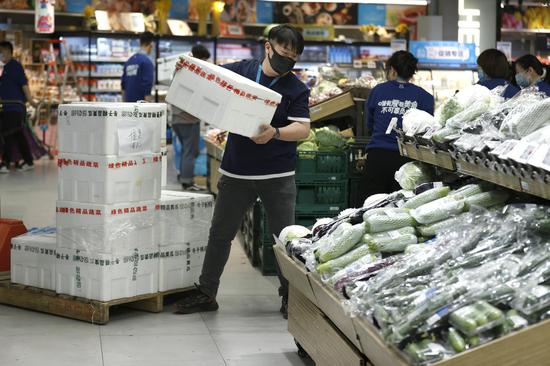

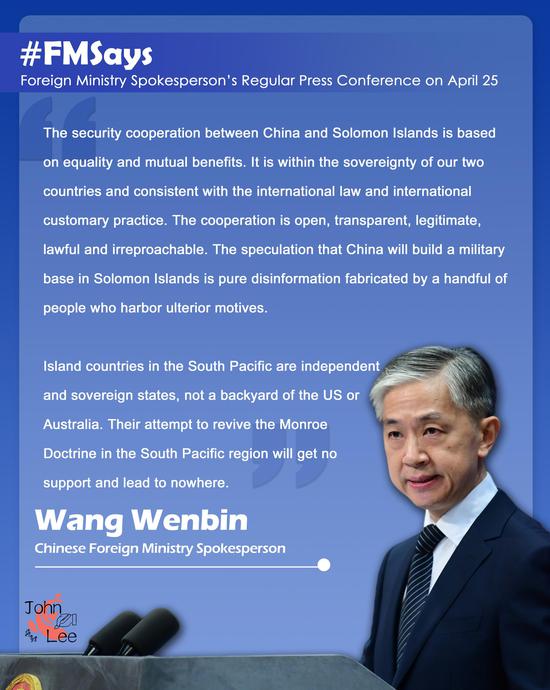
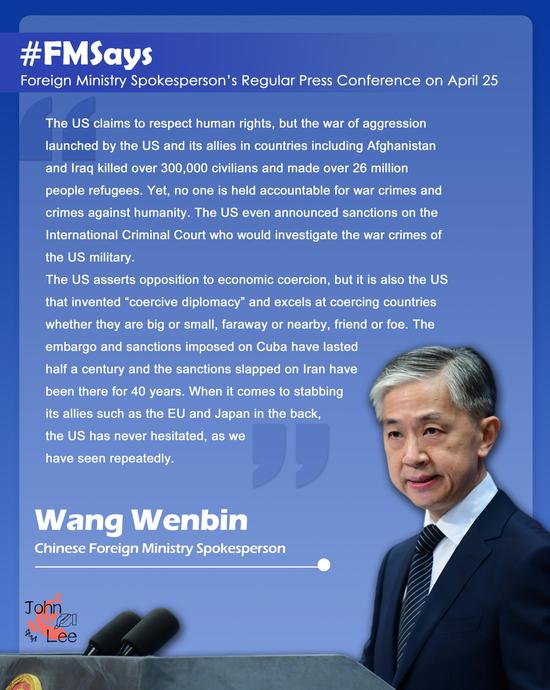
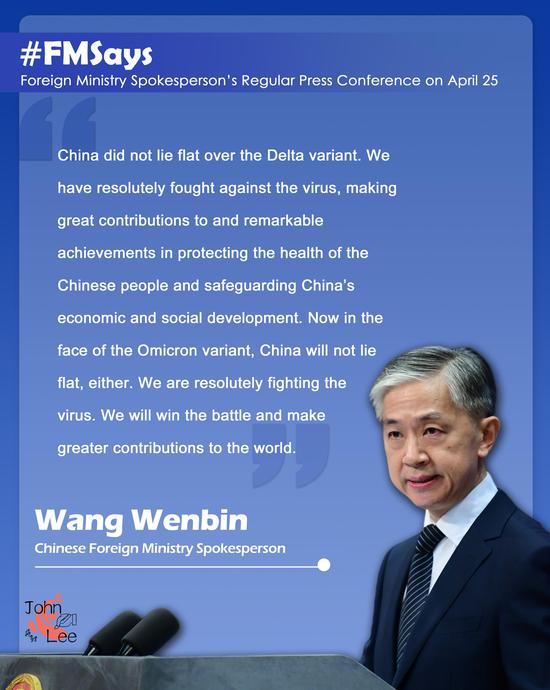
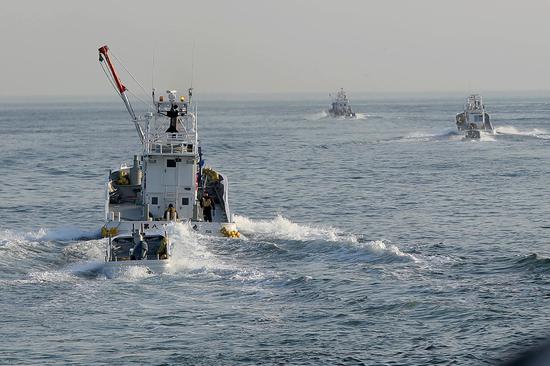

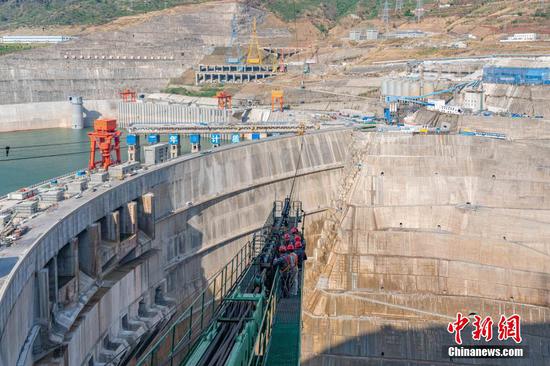

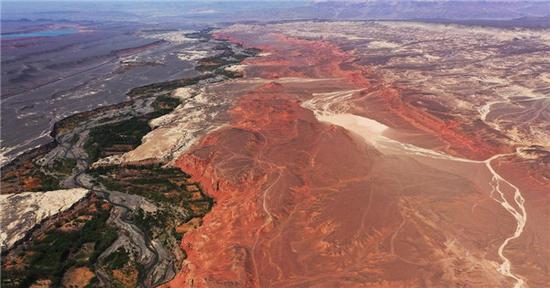
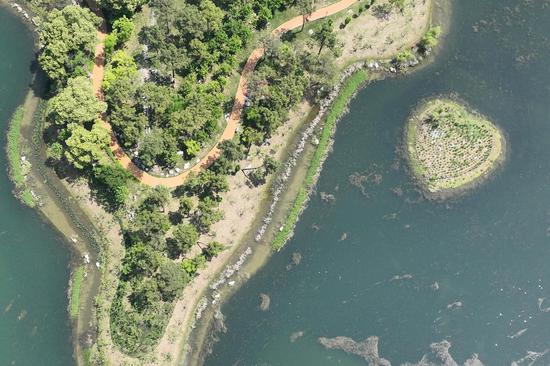



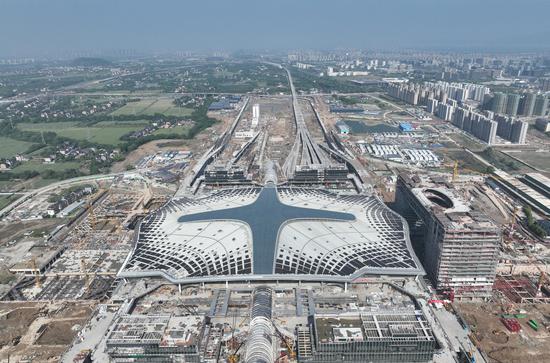
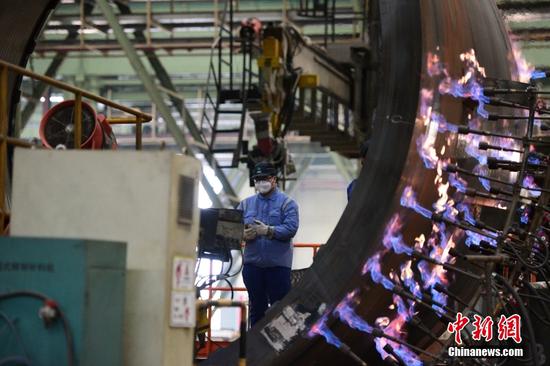

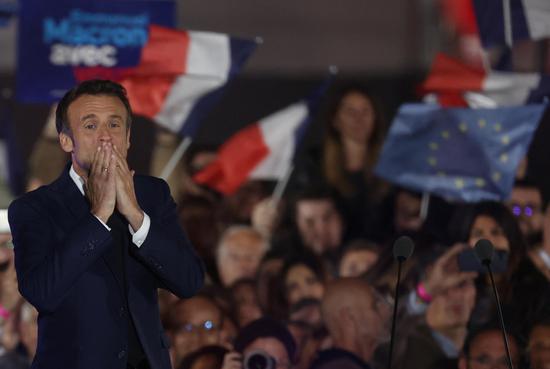
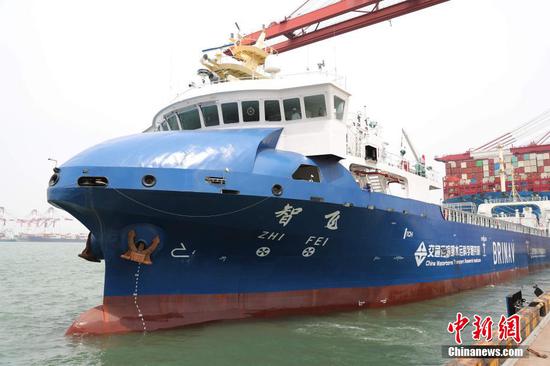

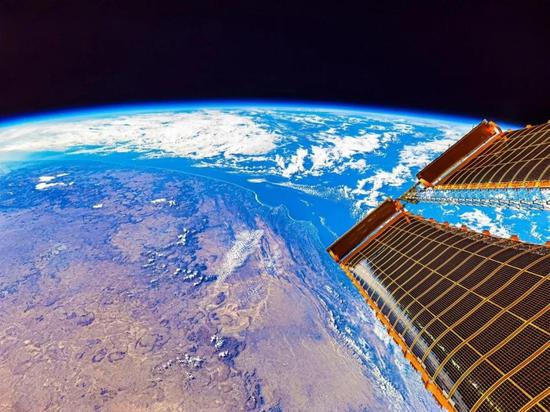
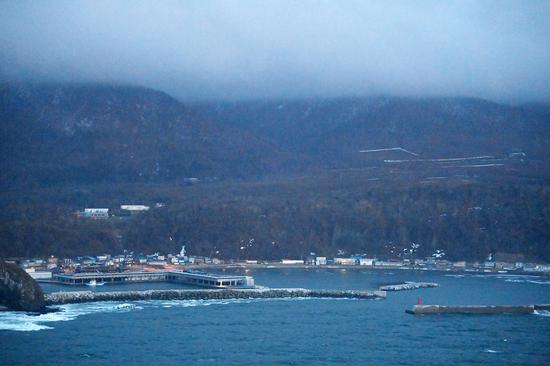
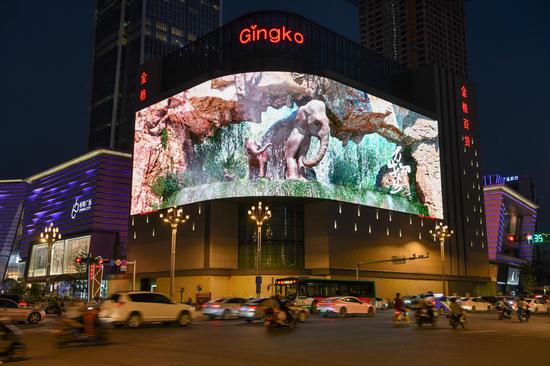

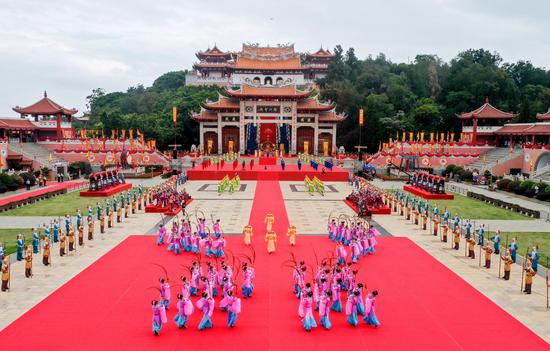

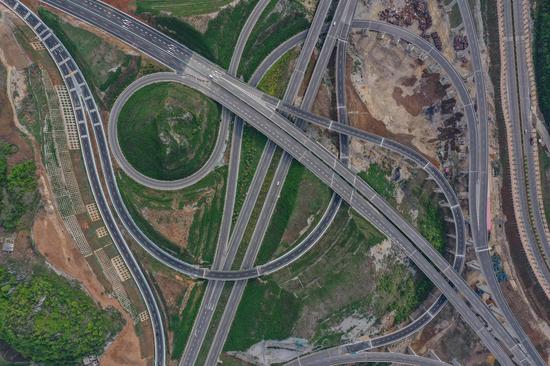
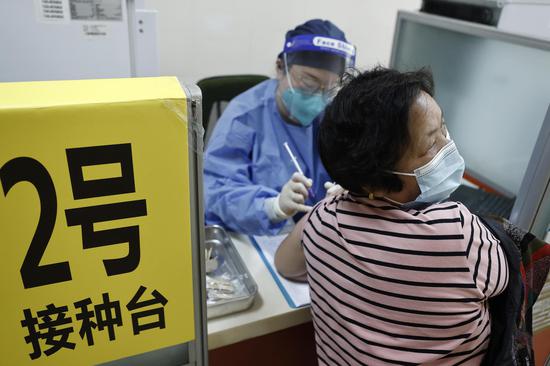


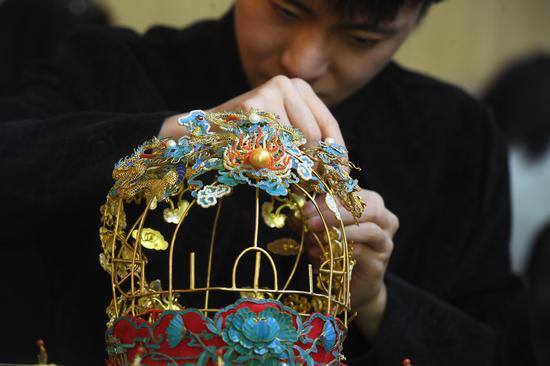

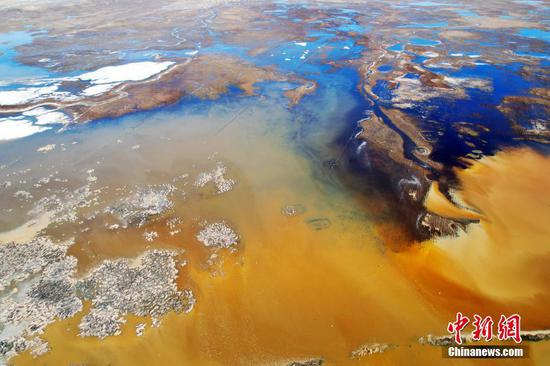
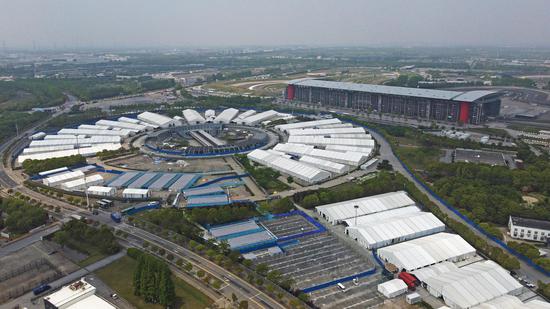


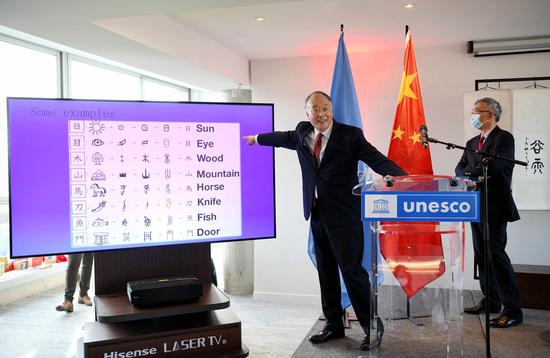





 京公网安备 11010202009201号
京公网安备 11010202009201号